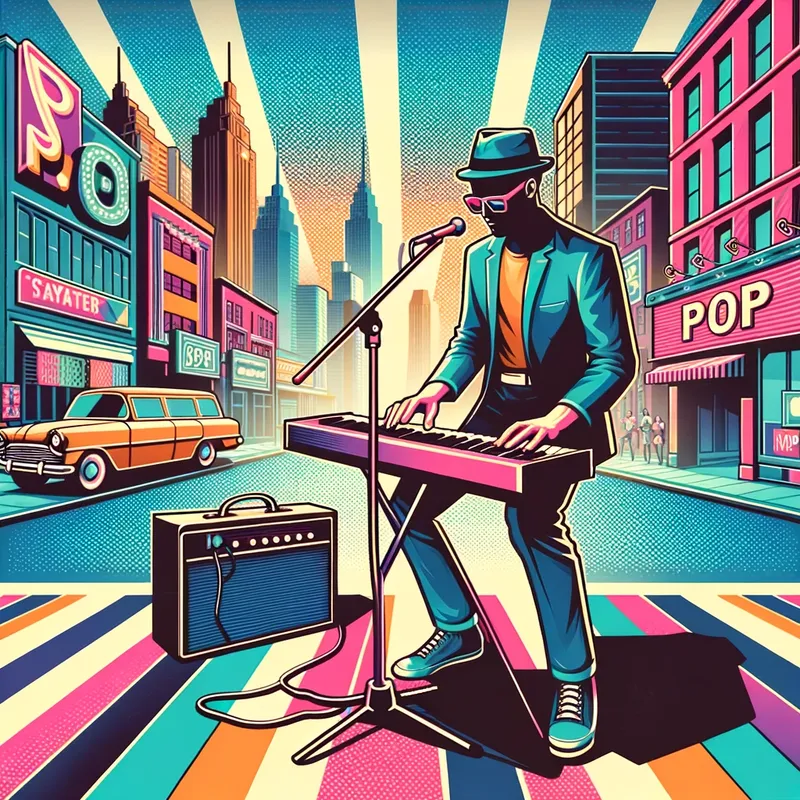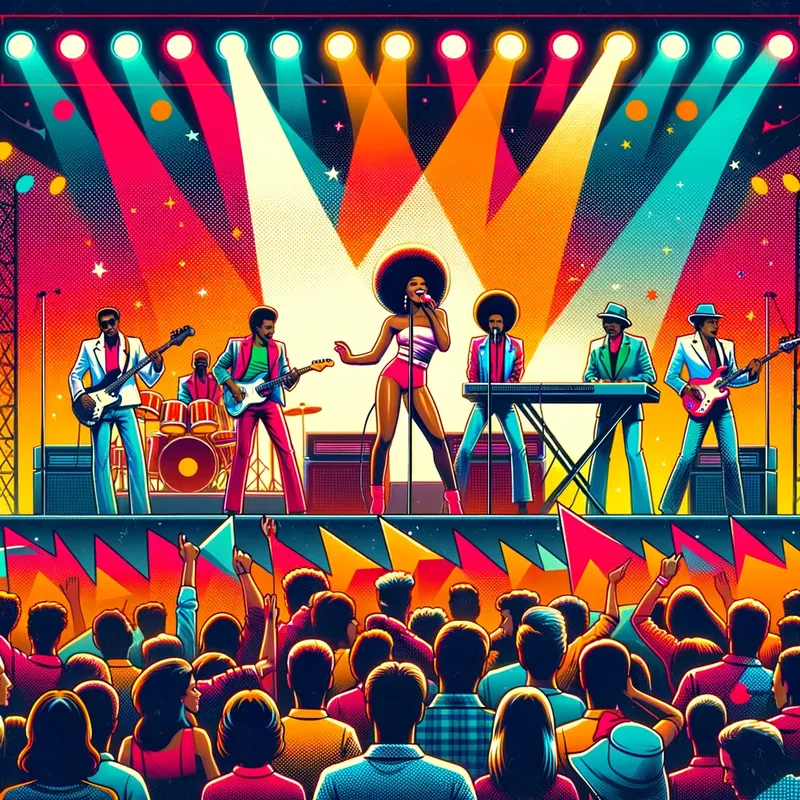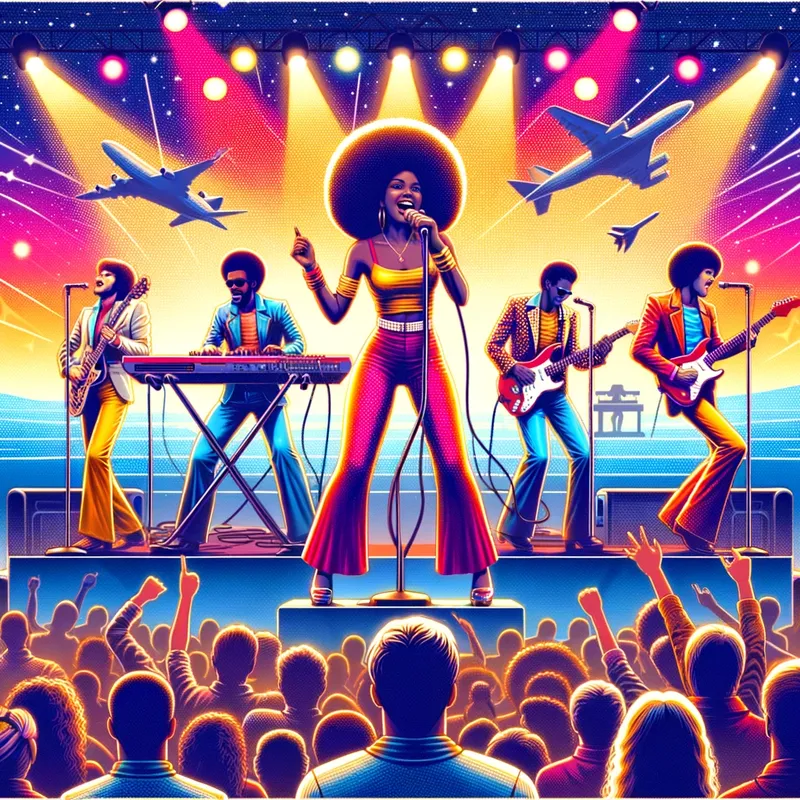Synth-Pop

If you’ve ever tapped your foot to the electrifying beats of Depeche Mode or jammed out to the pioneering sounds of Kraftwerk, then you’re already vibing with the wonder that is Synth-pop.
Let’s deep-dive into this fascinating genre that revolutionized the music scene and still influences the charts today.
Table of Contents
What is Synth-Pop Anyway?
Synth-pop is a genre of music that combines the catchy melodies and hooks of pop music with the futuristic, electronic sounds produced by synthesizers. Born in the late ’70s, the genre saw its heyday in the 1980s with the advent of affordable synthesizers and drum machines. Unlike other forms of music that relied heavily on traditional instruments like guitars and drums, Synth-pop artists went full-on tech, pioneering a new wave of electronic music.
The Pioneers
Kraftwerk is often hailed as one of the earliest groups to experiment with synthesizers, giving us the classic track “Autobahn.”
Gary Numan’s 1979 hit “Cars” took Synth-pop mainstream, cementing its place in the pop culture psyche.
Then you have bands like Depeche Mode, The Human League, and New Order who absolutely dominated the ’80s scene.
And we can’t forget the ladies! Acts like Eurythmics and Cyndi Lauper also rocked the Synth-pop world.
How Did It Change Music?
The synth wasn’t just a musical instrument; it was a cultural shift. It was affordable, and it allowed musicians to create new kinds of sounds that weren’t possible with traditional instruments. Synth-pop became the soundtrack of an era, shaping fashion, music videos, and even the fledgling world of video games.
Synth-Pop Today
Artists like La Roux and Owl City have reinvigorated the genre for a new generation. Even pop superstars like Lady Gaga and The Weeknd have borrowed heavily from Synth-pop, proving its lasting influence.
Best Synth-Pop Tracks to Get You Started
Here are some must-listen tracks that encapsulate the genre:
- “Don’t You Want Me” – The Human League
- “Enjoy the Silence” – Depeche Mode
- “Sweet Dreams (Are Made of This)” – Eurythmics
- “Take On Me” – a-ha
- “Blue Monday” – New Order
FAQ
What is a synthesizer?
A synthesizer is an electronic instrument that generates audio signals to create sound. The sounds can be shaped and modulated by various components within the synthesizer. Synthesizers are the backbone of Synth-pop, providing the unique, futuristic sound that defines the genre.
Is Synth-pop only an ’80s thing?
Absolutely not! While the genre had its golden era in the 1980s, it’s far from being just an “old-school” genre. Many contemporary artists incorporate Synth-pop elements into their music, and some are dedicated to reviving the classic Synth-pop sound.
What’s the difference between Synth-pop and Electropop?
Synth-pop and Electropop are often used interchangeably, but they’re not exactly the same. Electropop usually leans more into dance music and often incorporates more modern electronic sounds. Synth-pop, on the other hand, tends to have a more nostalgic, ’80s vibe and often focuses on melody and lyrical content.
Can I make Synth-pop music on my computer?
Yes, you can! Thanks to modern technology, various software synthesizers and digital audio workstations (DAWs) are available that can help you create Synth-pop music right on your computer. Programs like FL Studio, Ableton Live, and Logic Pro X offer a wide range of synthesized sounds to get you started.
What are the most iconic synthpop albums?
“Dare” by The Human League
“Violator” by Depeche Mode
“The Man-Machine” by Kraftwerk
“Speak & Spell” by Depeche Mode
“Actually” by Pet Shop Boys
Why has synthpop become so popular?
Synth-pop revolutionized how music was made, introducing electronic instruments as valid forms of artistic expression. Plus, its impact can be felt across multiple domains, from fashion to video game soundtracks, and it continues to influence modern music to this day.
Are there any documentaries or books on Synth-pop?
Yes, indeed! If you’re looking to deepen your understanding of the genre, you might want to check out documentaries like “Synth Britannia” or books such as “Mad World: An Oral History of New Wave Artists and Songs That Defined the 1980s.”


